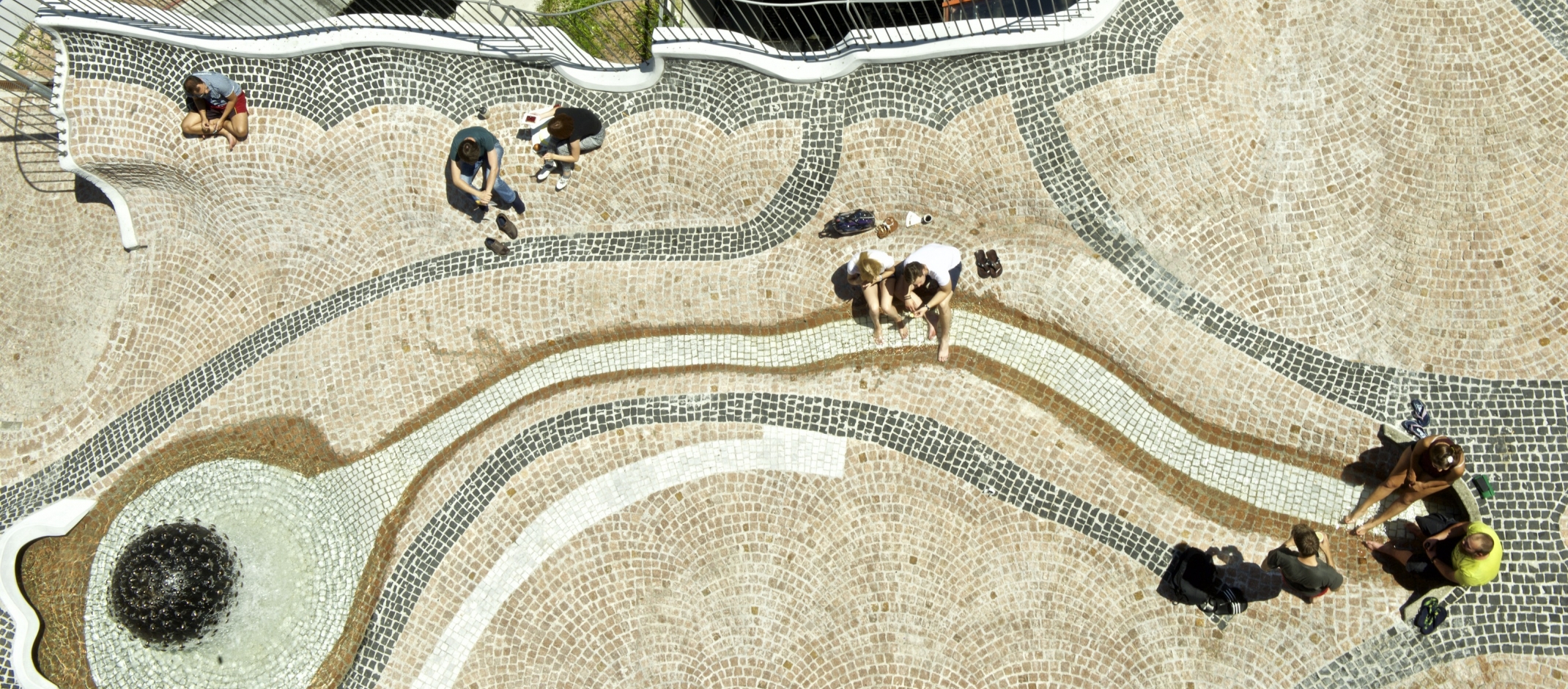The desire for utopia

“He would have loved the interconnected paths on the University of Konstanz’s campus”, says Professor Anne Kwaschik. The professor for the history of humanities is referring to Charles Fourier, the French social theorist in the 19th century, who assumed that people were a product of their environment. That is why how homes or gardens looked was important to him. Fourier’s idea was that paths should be constructed so that people meet others. The architecture of the University of Konstanz would have pleased him, in that all its paths connect in the area between the entrance to the university and its canteen.
Exploring how people live together in and through utopias is also the subject of Anne Kwaschick’s new research project. She is just back from Paris, where she joined the Deutsches Historisches Institut (DHI) in organizing a Summer School that discussed connections between evaluating existing society and participating in social experiments of the 19th and 20th centuries. She has deep personal and scientific ties to France.
personal
Anne Kwaschik wrote her dissertation on the French cultural historian Robert Minder and was awarded both the Deutsch-Französischen Parlamentspreis and the Friedrich-Meinecke-Institute’s dissertation prize in 2010 for her work. She has worked at the Centre national de la recherche scientifique, the École des hautes études and the DHI Paris. These experiences were followed by research stays in New York and a period as visiting professor in Rome. Before her appointment at the University of Konstanz, Anne Kwaschik last worked as junior professor for Western European history at the FU Berlin and as vice director for the field of history at its “Frankreichzentrum”.
Ever since Plato, broad social theories have existed, and there have been phases in which societies have attempted to put these theories into practice. Examples include the early socialists of the 19th century, the “life reform” social movement of the 1920s or the protests of 1968. “From the history of humanities perspective, it is not important whether the implementation failed”, says Anne Kwaschik. She prefers to speak of experiments instead of implementation. “It is more interesting to consider the theoretical impact of social utopias. And there is almost always an observable result”, she says. The historian has experienced that the subject of social experiments is highly relevant today, not just because of the Summer School’s large international resonance. Her students in Konstanz demonstrate immense interest in questions on this topic: “People always say that utopias have disappeared, but I think that there is a strong desire for alternatives”.
The science of human coexistence also includes, in a sense, the scientification of colonialism in the 19th and 20th centuries. Anne Kwaschik wrote her habilitation (post-doctoral qualification) on the topic, which was published in book form in September of 2018 under the title “Der Griff nach dem Weltwissen”. Her research explored how societies in the 19th and 20th centuries acquired knowledge from Africa and Asia and then ordered and produced it.
During the colonial period at the end of the 19th century, no science existed which studied culture as a whole. It was, however, necessary to understand the people in colonies better in order to govern them, and this task required obtaining relevant cultural knowledge. “A classic question at the time was which concept the people had of punishment or guilt – how else would it have been possible to implement a European legal system”? Kwaschik explains. At this time, transitional developments such as the “colonial studies” took place, whose influence has continued through the present day. In the end, even the social science fields like sociology and anthropology have developed from these roots.
